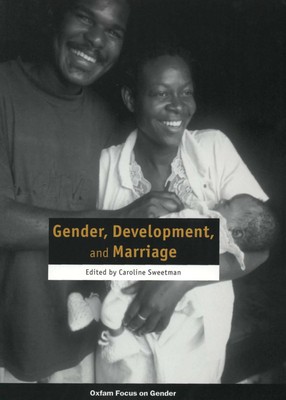
- We will send in 10–14 business days.
- Author: Caroline Sweetman
- Publisher: Oxfam
- ISBN-10: 0855985046
- ISBN-13: 9780855985042
- Format: 18.9 x 24.9 x 0.8 cm, minkšti viršeliai
- Language: English
- SAVE -10% with code: EXTRA
Reviews
Description
Marriage is now acknowledged as an institution of key relevance to development policy, practice, and research. The vast majority of women and men get married at least once, and in many places life outside marriage is almost impossible for either sex to contemplate. Yet marriage experienced by men is very different from marriage for women. This is because marriage is, in all male-dominated societies, an institution imbues with inequality, in which husbands and fathers rule the roost. Many cultures and legal systems still permit the control and punishment of unruly wives, through violence ranging from genital mutilation to domestic beatings. Within marriage there exist clear roles for women and men to perform, as they create and maintain a family. The conventional assumption that these roles are natural and divinely ordained determines the inequality that prevails between men and women. It also helps to set the terms on which women participate in wider society, and colours perceptions of the political and economic contribution that they make. The collection of articles traces the economic and social impact of inequality in marriage on women, men, and wider society, and considers its implications for development. Topics include child marriage; the link between women's economic contribution and equality within marriage; NGO responses to domestic violence; and the need to understand particular forms of marriage as prerequisite for appropriate development policy
EXTRA 10 % discount with code: EXTRA
The promotion ends in 22d.23:13:09
The discount code is valid when purchasing from 10 €. Discounts do not stack.
- Author: Caroline Sweetman
- Publisher: Oxfam
- ISBN-10: 0855985046
- ISBN-13: 9780855985042
- Format: 18.9 x 24.9 x 0.8 cm, minkšti viršeliai
- Language: English English
Marriage is now acknowledged as an institution of key relevance to development policy, practice, and research. The vast majority of women and men get married at least once, and in many places life outside marriage is almost impossible for either sex to contemplate. Yet marriage experienced by men is very different from marriage for women. This is because marriage is, in all male-dominated societies, an institution imbues with inequality, in which husbands and fathers rule the roost. Many cultures and legal systems still permit the control and punishment of unruly wives, through violence ranging from genital mutilation to domestic beatings. Within marriage there exist clear roles for women and men to perform, as they create and maintain a family. The conventional assumption that these roles are natural and divinely ordained determines the inequality that prevails between men and women. It also helps to set the terms on which women participate in wider society, and colours perceptions of the political and economic contribution that they make. The collection of articles traces the economic and social impact of inequality in marriage on women, men, and wider society, and considers its implications for development. Topics include child marriage; the link between women's economic contribution and equality within marriage; NGO responses to domestic violence; and the need to understand particular forms of marriage as prerequisite for appropriate development policy


Reviews